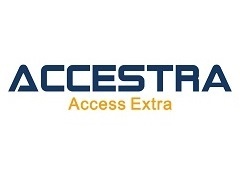On May 6th, the generic pharmaceuticals company Sandoz announced that it has received regulatory approval from China’s National Medical Products Administration (NMPA) for its generic Rosuvastatin (a cardiovascular drug belongs to statin medicine group), under the NMPA’s Quality Consistency Evaluation (QCE) system. As the first approved generic drug under the QCE system in China applied by foreign pharmaceutical company, this approval is considered as a milestone of generic imported drugs in China market.
The Quality Consistency Evaluation (QCE) regulations in China was initiated nationwide after the State Council’s General Office issued the “Opinions on the Quality and Efficacy Evaluation of Generic Drugs” in March 2016. It’s the most critical policy of the healthcare system reform package introduced by the Chinese government since 2015. The original intention of the Chinese government is to solve the problem of the uneven quality and efficacy of generic drugs in China’s pharmaceutical industry. The QCE is mainly about pharmaceutical companies evaluating the generic drugs that have been authorized in China market to achieve the same quality and efficacy level as the originator drug. And before that, the reference standard for generic drug production in China was only the Chinese national standard.
Unlike the United States and Japan, which are also conducting re-evaluation of drug efficacy, China has developed a very compact timeline in the early days of QCE: the solid oral dosage form chemical generic drug which included in the National Essential Drugs List (2012 edition) and authorized for marketing before Oct 1st, 2007 (289 drugs with 17,740 approval numbers and involving more than 1,800 companies), should complete the consistency evaluation before the end of 2018; the drugs require clinical trials or with special cases should complete the evaluation before the end of 2021. The drugs fail to pass the QCE within the time limit will not be permitted to extend the market approval.
Because of the huge workload involved and the lack of official QCE related guidelines, most generic drug evaluation cannot be completed by the end of 2018 (until the end of November 2018, there are only 90 generic drugs in National Essential Drugs List (2012 Edition) approved under QCE system). Hence China NMPA issued a new announcement in December 2018, adjusting the time requirements for pharmaceutical industry: the evaluation time limit will no longer be set for the essential drugs, however, the update of National Essential Drugs List will change to a dynamic mechanism (the current edition is 2018 edition) instead, which means the drugs get QCE approval are preferentially included in the List, and the drugs have not completed the consistency evaluation will be gradually moved out of the List. The general timeline requirement for all the generic drug already approved on China market is: if there is a drug complete the consistency evaluation firstly, the other pharmaceutical manufacturers of the same drug product should finish the evaluation within 3 years. But the time limit can be extended for extra five years at most if the drugs are proved to be clinically needed and in short supply on the market.
The QCE in China requires both in vitro dissolution test and in vivo bioequivalence study, and for some generic drug lacks of RLD, further clinical trial is needed to prove the efficacy. Although NMPA has published a list of which drugs can exempted the bioequivalence test, the consistency evaluation still means high cost for Chinese local pharmaceutical manufacturers. The normal quotation of in vitro dissolution test in China is around 150,000~500,000 USD, and the quotation of BE test in China is around 800,000 USD. The total cost for QCE should be even higher considering the potential test fail.
On the other hand, the Chinese government has given priority to the generic drugs which completed the consistency evaluation in the hospital centralized procurement of drugs. In the second half of 2018, the new centralized procurement policy introduced by the National Healthcare Security Administration of China has enforced in 11 pilot Chinese provinces, which clearly stipulates that if there are more than 3 drug manufacturers providing the same drug approved under QCE system, the manufacturer whose drug has not complete the consistency evaluation will be no more selected as the supplier.
For the drug Rosuvastatin, there are five companies that have got the generic drug QCE approval other than Sandoz, and there are another 13 companies which are now in the application phase, 27 companies which have applied for the BE study. The company called Jingxin Pharma has won the procurement bid of Rosuvastatin Calcium Tablets in the 11 pilot areas with the price of 21.8 RMB for 10 mg*28 tablets. Therefore, a fierce competition is foreseeable between Sandoz and the originator company AstraZeneca and other local companies such as Jingxin Pharma. And the QCE approval is more like a ticket to the competition track.








